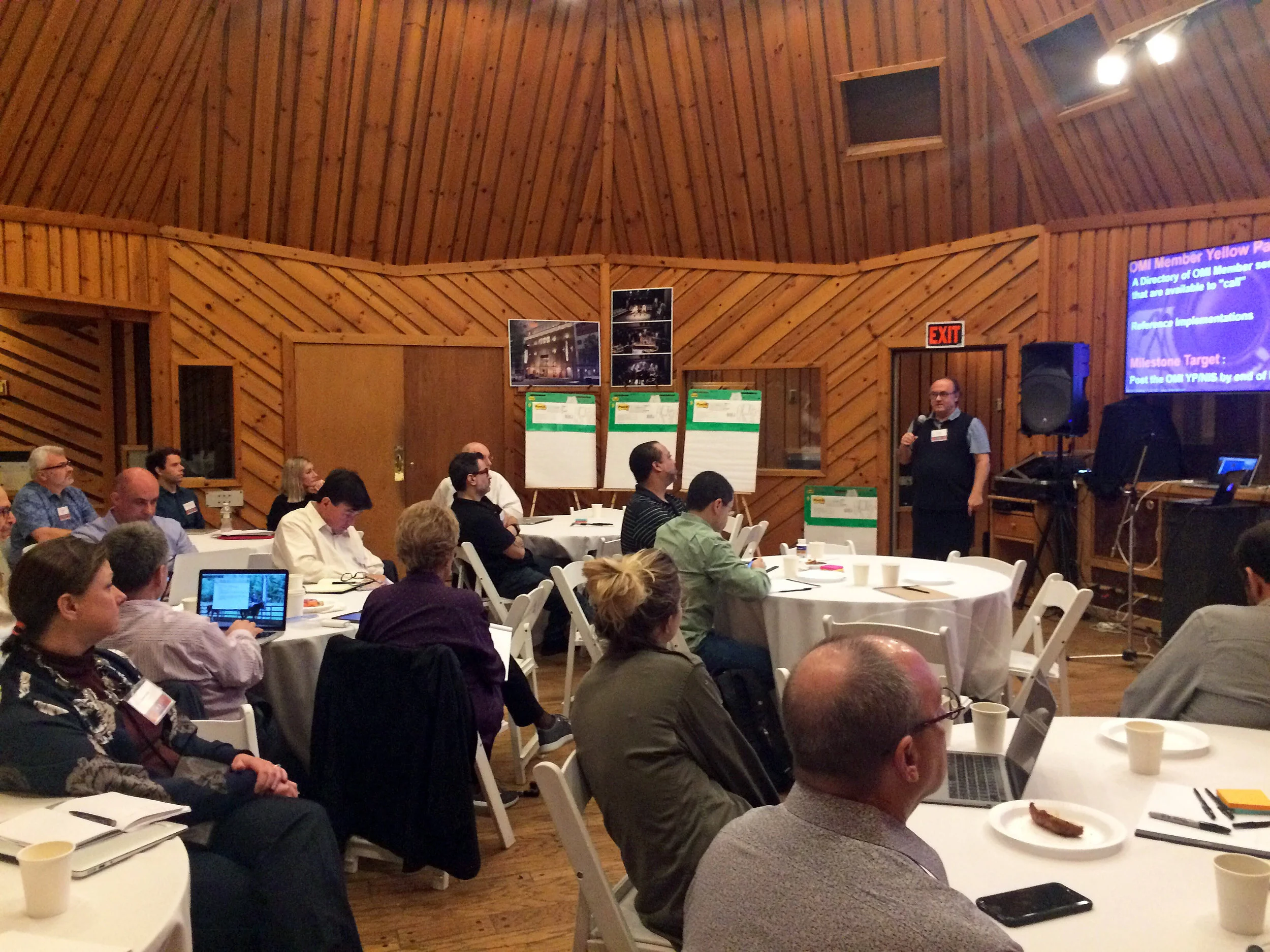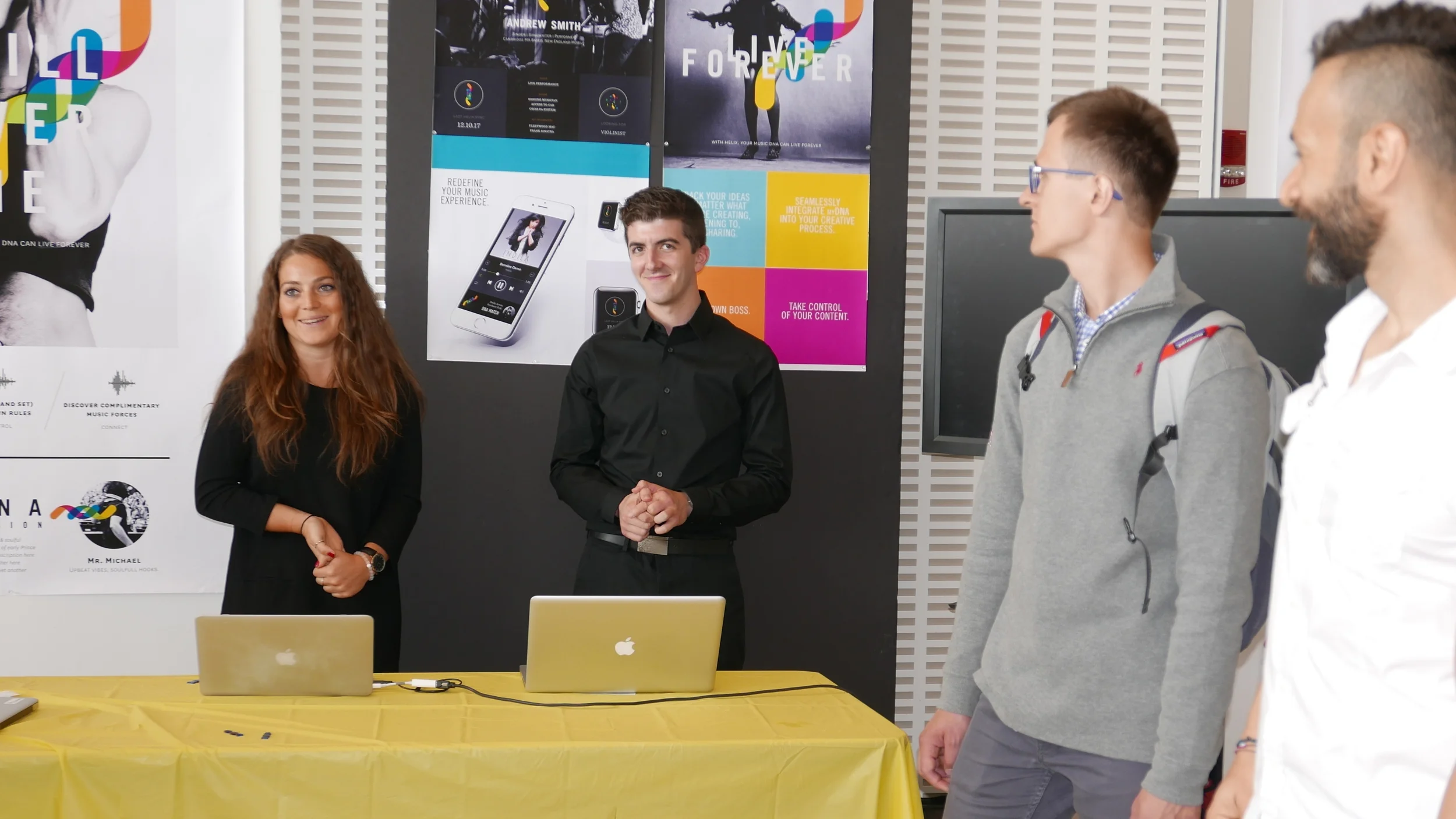OMI co-founder Dan Harple recently described the “recurring heartbeat” that has pulsed since OMI launched one and a half years ago, strengthening as more and more members joined from across the music-tech ecosystem. Harple’s industry-wide heartbeat aptly illustrates Open Music, formed to create an open-source protocol allowing the many appendages of the creative industry to work together. To work.
Read MoreAs the Open Music Initiative (OMI) continues to “Open Music,” it begs the question: for and by whom? For the last year, OMI focused on the “HOW.” This summer’s Open Music Summer Lab included nineteen students from across the US and the world; experimenting with new methods of digital rights identification and tracking using technologies such as artificial intelligence (AI) and Blockchain.
Read MoreThe Open Music Initiative Summer Lab is an 8-week program, in which the Open Music Initiative hosts nineteen student software developers, musicians and visual artists at the IDEO Cambridge Studio and Workbar Cambridge. During the 8-week program, four teams are challenged to envision a future for music and its industry through the lens of human-centered design, distributed ledgers, and the OMI API. Throughout the program, each team will be generating prototypes with the intention of developing and refining a venture concept.
Read MoreThe OMI held its inaugural Technology Meeting in New York City on September 13th. The timing was apt. There’s a certain energy around the fall. Beyond it being the season when students leave summer behind and begin focusing on their studies, there’s also a general sense of activity ramping up across all sectors. Whether the fall manifests in energy in university settings or in the business sector as they move towards the all-important fourth quarter of their fiscal year, the unifying theme is a bias towards action.
It’s appropriate, therefore, that Dan Harple (see my interview with him here), opened the proceedings with the exhortation of “Deploy, deploy, deploy.”
Read MoreGeorge Howard interviews Dan Harple about his “Pentalytic Method,” derived from research he did at MIT as a Sloan Fellow and as an Entrepreneur-in-Residence. This work forms what he calls Innovation Dynamics, and is at the core of the OMI’s structure and methods.
Read MoreIf you've read the outcomes from the Summer Lab you must be wondering, "How the heck did music students develop those ideas so quickly?" This repost from Fast Company by IDEO partner and OMI co-founder, Michael Hendrix, sheds some insight on how.
Read MoreIf the projects that resulted from the first week’s sprint congealed around the “garbage in/garbage out” problem as it relates to more effectively defining and utilizing data, then this second sprint took aim at better satisfying the customers.
Read MoreA summary of the kick off and the first sprint which focused on gathering clean data during the creative process of writing and recording music
Read MoreEvery day we post a moment from the Summer Lab to our Instagram account, @openmusicinitiative. It's different every day: sometimes it's the movement of prototyping, or a quiet moment at the start of class. Sometimes Arabian Prince of NWA Skypes in and you get a snapshot of that. And sometimes, it's just post-its.
Today, it's going to be some heavy-duty making at the IDEO Cambridge Studio, as the fellows prepare for their first Demo Day tomorrow!
Hope to see you there - follow along with us!
Read MoreIncomes for all those involved in the music-making and producing process have dropped precipitously in the last two decades. There are many reasons for this— most of which most of us in the music and media industries will likely not agree on—but one thing is clear: the infrastructure on which our business has operated for the last century is not adequate to address the new ways music is being produced and consumed today—and even more so, tomorrow.
Read MoreThe accelerated growth of the Internet radically changed the way everyone consumes media. It was disruptive and grew exponentially, often damaging long-held business practices. I believe that the “supply-chain” of media, and music, starts at its core, the artist. The Internet brought a pendulum effect to the supply chain, placing the artist on one extreme, and the digital distribution model at the other. The farther this pendulum swings toward the distribution model side, the less value delivered to the creative forces that drive the industry. At the root of this problem is the inability to discover, track, and manage an effective flow for music distribution and rights issues. OMI has been created to solve this thorny issue. OMI strives for a better balanced equilibrium of these economic forces.
Read MoreForty music, design and computer science students filled a glass-walled room on an early June morning at Berklee College of Music. This was a day-long audition, a chance to qualify for a three-week innovation sprint in July…
Read More












